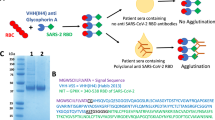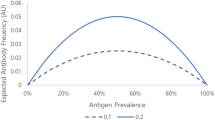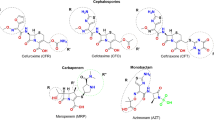Abstract
IT has been observed that the use of human serum, instead of saline, as a diluent in titration of immune agglutinins (A, B, Rh) enhances the action of these antibodies, and higher titres are therefore obtained1. Similarly, the “conglutination-test” for the detection of Rh sensitization is also based on the use of human serum, instead of saline, for dilution in titration2. In describing the “conglutination-reaction”, Wiener suggested that this is due to a serum factor, a protein, which is not fully developed in the foetus and is formed only shortly after delivery2,3. The post-natal formation of sufficient quantities of this protein would presumably account for the development of erythroblastosis talis after delivery, and not during pregnancy.
This is a preview of subscription content, access via your institution
Access options
Subscribe to this journal
Receive 51 print issues and online access
$199.00 per year
only $3.90 per issue
Buy this article
- Purchase on Springer Link
- Instant access to full article PDF
Prices may be subject to local taxes which are calculated during checkout
Similar content being viewed by others
References
Boorman, K. E., Dodd, B. E., and Morgan, W. I. J., Nature, 156, 663 (1945).
Wiener, A. S., J. Lab. and Clin. Med., 30, 662 (1945).
Wiener, A. S., Amer. J. Diseas. Child., 71, 14 (1946).
Author information
Authors and Affiliations
Rights and permissions
About this article
Cite this article
POLISHUK, Z., GUREVITCH, J. Enhancement of Immune Antibodies by Human Serum. Nature 158, 589–590 (1946). https://doi.org/10.1038/158589c0
Issue Date:
DOI: https://doi.org/10.1038/158589c0
Comments
By submitting a comment you agree to abide by our Terms and Community Guidelines. If you find something abusive or that does not comply with our terms or guidelines please flag it as inappropriate.



